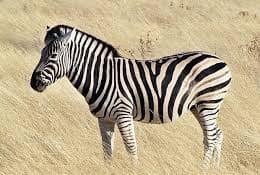Last updated on September 11th, 2021 at 02:57 pm
South Africa is turning towards the implementation of new laws that fully allows the economic exploitation of wildlife.
The intention is to market the use of all kinds of wild species, including giraffes, zebras, emu, and duikers, in order to produce cheap meat.
However, the current corona virus crisis shows this can be a public health, economic and ecological disaster. Despite the pandemic, and despite the causes of this zoonosis, South Africa is preparing to expand and intensify captive breeding of wild species and sell their meat in the food markets.
This is an alarming turning point in the nation’s immense biological heritage management policies. The plan was published in the Official Gazette on 28 February in a proposal to revise the Meat Safety Act, the law that has regulated meat production since 2000.
The proposal is to expand the number of non-domestic but edible species “that can be slaughtered as food for humans or for animal consumption”. The list contains 104 species, including: zebras, red hartebeest, wildebeest, springbok, dik dik, lechwe, kudu, duiker, gemsbok, eland, impala, rhinos (black and white), hippos, giraffes, elephants and crocodiles.
The proposal also points out that “this scheme includes animals that are listed as endangered species, in accordance with conservation measures, and therefore their slaughter for both human and animal consumption must be in line with the most relevant conservation indications”.
For some time, conservation and breeding have been going on the same track in South Africa. The move by the Government, in which the Ministry of the Environment and the Ministry of Agriculture move along a concerted path dotted with legal gaps, has not surprised those in South Africa working in the conservation and in the wildlife farming industry, which supplies trophy animals to hunters and lion bones to Chinese and South East Asian buyers.

